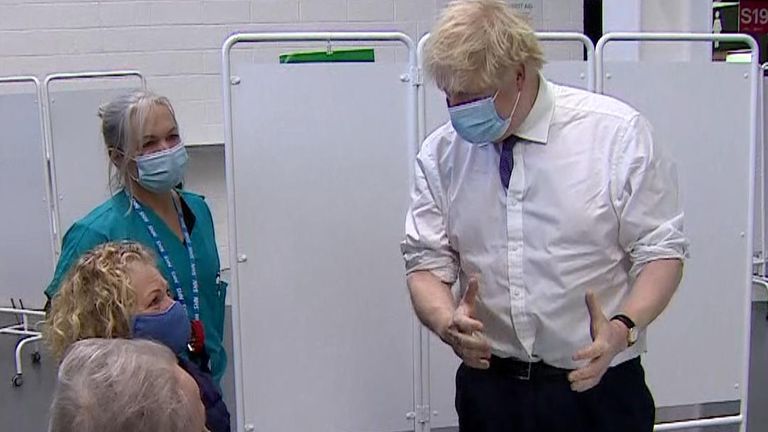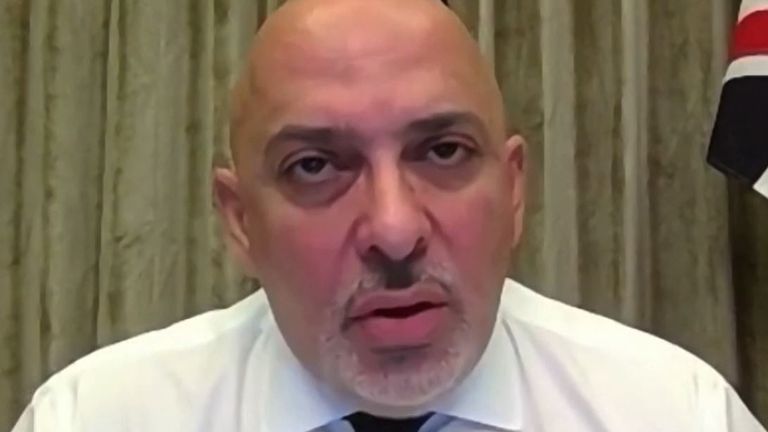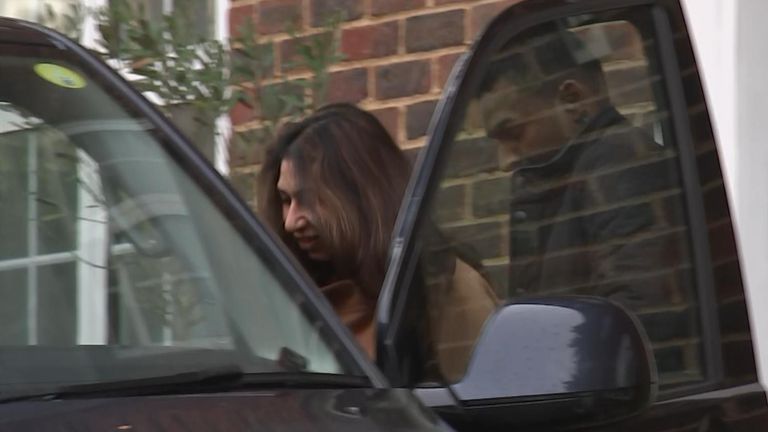More than 2.6 million coronavirus vaccine doses have been given to almost 2.3 million people, the health secretary has said, as an NHS boss warned the jab is “not a free pass” to ignore national guidance.
Matt Hancock told a Downing Street news conference that the government was on track to achieve its pledge of vaccinating the top four priority groups by the middle of February, a total of 15 million Britons.
Live COVID updates from UK and around the world
“We are on track to meet that target – it’s not going to be easy, but we are going to get there,” he said, describing vaccines as the “fastest route to safely lifting restrictions”.
New figures show a total of 2,286,572 people have been given a first vaccine dose – 1,959,151 in England, 163,377 in Scotland, 86,039 in Wales and 78,005 in Northern Ireland.
A total of 388,677 second doses have been administered.
The four priority groups are: care home residents and staff; all those aged 80 and over and frontline health and social care workers; people aged 75 and over; everyone aged 70 and over and individuals classed as extremely vulnerable.
Mr Hancock said people in these groups account for 88% of COVID deaths, adding that two fifths of over 80s and “almost a quarter of older care home residents” have received their first dose of a coronavirus vaccine.
The health secretary was speaking amid continued speculation about whether England’s third lockdown could be strengthened.
Prime Minister Boris Johnson has warned the government “may have to do more” if ministers feel the rules “are not being properly observed”.
Asked whether this was a possibility, Mr Hancock said people should be focusing on sticking to the current rules “as they are”.
“The NHS, more than ever before, needs everybody to be doing something right now – and that something is to follow the rules,” he said.
“I know there has been speculation about more restrictions, and we don’t rule out taking further action if it is needed, but it is your actions now that can make a difference.
“Stay at home, and please reduce all social contact that is not absolutely strictly necessary. That’s what is needed: act like you have the virus.”
Ministers are understood to be considering how to achieve greater enforcement of social distancing and mask-wearing in supermarkets.
:: Listen to Sophy Ridge on Sunday on Apple podcasts, Google podcasts, Spotify, Spreaker
The health secretary said the new “highly contagious” coronavirus variant first identified in the UK was “putting the NHS under very significant pressure”, with 32,294 people currently in hospital with the virus across the UK, up 22% on this time last week.
Professor Stephen Powis, national medical director for NHS England, said there are now 13,000 more COVID patients in hospital than there were on Christmas Day.
He described the vaccines as the “best line of defence we have”, adding that they would lead to a gradual drop in people in hospital.
“But we are not going to see it now,” he said. “We are not going to see it next week or the week after.
“It won’t be until we get to February that we are going to see the early signs of that.
“The vaccination programme gives hope but to battle the virus today, we have to comply with the guidelines today.”
Professor Powis said the health service was “in a sprint” to reach the top four priority groups by the middle of next month, followed by the remaining vulnerable groups by April, and engaged in a final push to offer a jab to all adults over 18 by the autumn.
Appearing before MPs earlier, NHS England chief executive Sir Simon Stevens said the aim was to offer a jab to everyone over the age of 50 by the end of April.
The government’s UK COVID-19 Vaccines Delivery Plan says there will be more than 2,700 vaccination sites across the UK, with everyone in England within 10 miles of one by the end of January.
For those in remote rural areas, the vaccine will be taken to them by mobile teams.
The Department of Health said there will be capacity to deliver “at least” two million jabs per week in England by the end of this month, with staff and residents in care homes offered a vaccine before February.
Workers “delivering key public services”, likely to be a reference to teachers, transport workers and first responders, could be included in the second phase of the vaccine rollout, the plan states.
A workforce of more than 80,000 health workers could be involved in the vaccine plan, the Department of Health added, along with over 200,000 community volunteers who have come forward to help with non-clinical aspects of the programme.







